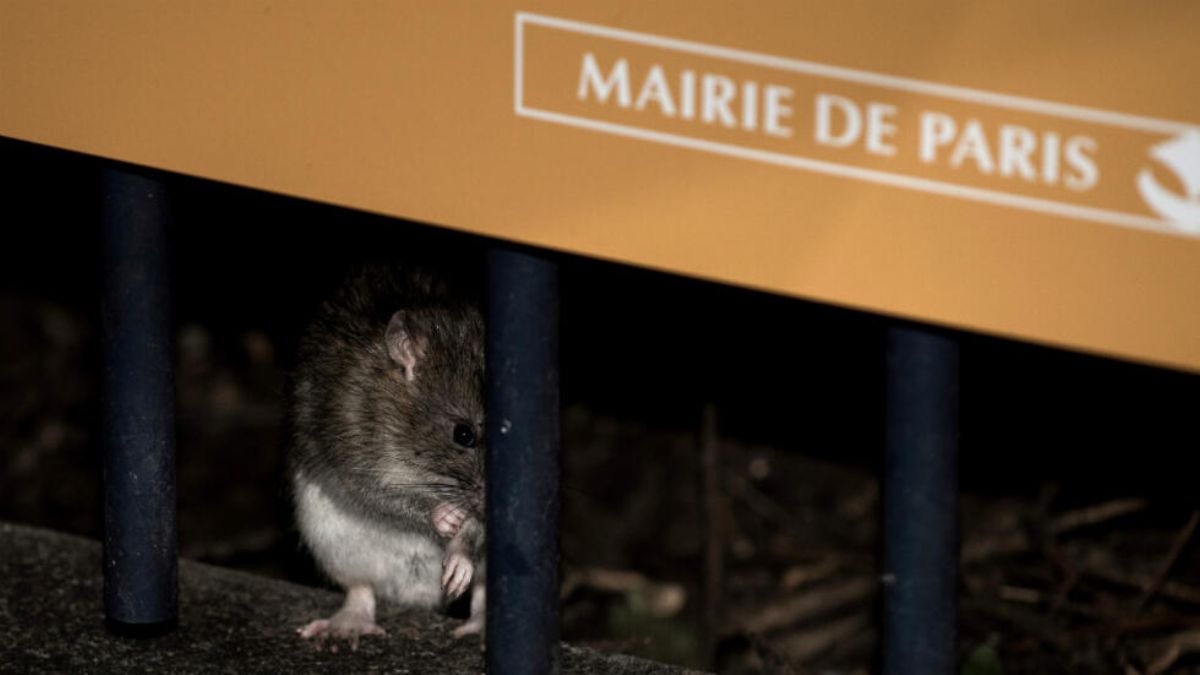Paris’s fabled relationship with rats, famously depicted in the animated film Ratatouille, is being put to the test as the city gears up for the Olympics next week. With a flood of visitors arriving for the summer Games, organisers are racing against the clock to keep these scurrying rodents in check.
As the international spotlight shines on Paris, city officials are determined to prevent the rat population from becoming a major issue.
“All of the Olympic sites and celebration areas were analysed (for rats) before the Games,” Deputy Mayor Anne-Claire Boux, responsible for public health, told AFP.
Rats have long been a challenge for Parisians. In fact, last year, Mayor Anne Hidalgo proposed that rather than eradicating the rodents entirely, a strategy of “cohabitation” might be more practical.
With the Olympics fast approaching, Paris is intensifying its efforts to manage the rat menace. From comprehensive clean-ups to deploying traps. Here’s a closer look at the situation
Paris’s ‘cohabitation’ with rats
Paris is home to around six million rats, which means there are roughly two rats for every person in the city, stated the French National Academy of Medicine.
This enormous population has even sparked some tongue-in-cheek remarks, with a British magazine columnist joking that the 2024 Olympics should adopt the motto: “Citius, Altius, Fortius, Rattus.”
Impact Shorts
More ShortsThe relationship between Paris and its rats is long and storied. In the 14th century, rats played a tragic role in the spread of the bubonic plague, wiping out about half the city’s population.
In recent years, Paris has tried various strategies to manage its rat problem. Back in 2017, the city introduced airtight trash bins and launched mass extermination campaigns. Some even suggested using birth control to curb the rat population. But the city’s approach has since evolved.
From 2021 to 2023, Paris embarked on “Project Armageddon,” a study aimed at understanding the environments where rats thrive and addressing common misconceptions about them. This initiative sought to strike a balance between managing the rat population and coexisting with these creatures.
“Rats are present in Paris, as in all major French cities, so the question of cohabitation necessarily arises,” said Paris Animals Zoopolis, an animal rights group.
Gilles Demodice, a manager in the city’s animal control department told The New York Times, “Rats play a very useful role for us because what they eat we do not need to dispose of, so it’s very economical for us, and when rats are underground they also clean the pipes with their fur when they run through them.”
Echoing this perspective, Deputy Mayor Anne-Claire Boux stated, “Ultimately, no-one should aim to exterminate Paris’s rats, and they’re useful in maintaining the sewers. The point is that they should stay in the sewers.”
Sprucing up before Olympics
With the Olympics just around the corner, Paris is pulling out all the stops to manage its rat problem.
The city’s rat hunters, known as the “Smash” team, are working closely with the Paris organising committee, advising on critical tasks such as sealing sewer exits and implementing other measures to keep rodents at out of sight.
Deputy Mayor Anne-Claire Boux highlighted that the main culprits of the rat issue are food scraps left on the ground and overflowing waste bins. To combat this, many bins are being replaced with new, rat-proof models. “The most important thing is that the bins are sealed and closed,” she emphasised.
Boulevards and squares in the city have also been meticulously cleaned, and numerous historic buildings have been given a fresh look. To further bolster cleanliness, Paris has deployed “dengue detectives” to track down tiger mosquitoes and prevent potential outbreaks, according to Fortune.
During the Olympics, the responsibility of waste management and street cleaning will be shouldered by the city’s robust cleaning and collection workforce, consisting of 7,500 individuals.
Last year, their three-week strike resulted in an estimated accumulation of 10,000 tonnes of garbage on the streets, highlighting the crucial role they play in maintaining the city’s cleanliness. They are set to earn bonuses of up to 1,900 euros for working through the Olympic period, while private contractors are also set to reinforce efforts to keep the city clean, AFP reports.
“I’m not at all worried (about rats),” Deputy Mayor in charge of waste, Antoine Guillou, told the news agency. “On the contrary, the Games will help us show definitively that this idea that you run into lots of rats in Paris is false.”
Guillou added, “There are some, we deal with them, but they’re not an issue specific to Paris nor on the scale that is sometimes suggested in a caricatural way.”
With input from agencies


)

)
)
)
)
)
)
)
)



